Respiratory syncytial virus (RSV) can cause a variety of respiratory illnesses in infants and young children. It most commonly causes a cold-like illness, but can also cause lower respiratory infections like bronchiolitis and pneumonia. We discussed how to prepare for rising RSV cases in an article in the last Provider Digest, and are now following up with some details on palivizumab.
Palivizumab (Synagis®) is a monoclonal antibody recommended by the American Academy of Pediatrics (AAP). It is recommended for administration to high-risk infants and young children likely to benefit from immunoprophylaxis for RSV, based on gestational age and certain underlying conditions.
Palivizumab 15mg/kg is administered intramuscularly once per month for a maximum of five doses from November through March, the peak RSV months. Palivizumab is not effective for the treatment of RSV disease.
The Alliance’s utilization criteria listed in Policy 403-1120 follows the current AAP recommendations. The Alliance will cover Synagis for members who meet the Conditions for Usage outlined in the policy.
Please note: information on nirsevimab (Beyfortus) and its inclusion in the Vaccines for Children (VFC) program will be provided at a later date.
| DIAGNOSIS | |
| Age 0-12 months at RSV season onset
☐ Infant born <29 weeks, 0 days gestation at birth. ☐ Preterm infant with chronic lung disease (CLD) of prematurity defined as gestational age <32 weeks, 0 days and a requirement for >21% oxygen for at least the first 28 days after birth. ☐ Infant with hemodynamically significant congenital heart disease (CHD) such as infants with acyanotic heart disease who are receiving medication to control congestive heart failure and will require cardiac surgical procedure and infants with moderate to severe pulmonary hypertension. ☐ Infant with cyanotic heart defects if deemed warranted by the infant’s pediatric cardiologist. ☐ Infant who undergoes cardiac transplantation during the RSV season. ☐ Infant with neuromuscular disease, significant respiratory disease or congenital anomaly that impairs the ability to clear secretions from the upper airway due to ineffective cough. ☐ Infant who is profoundly immunocompromised during the RSV season. ☐ Infant with cystic fibrosis and clinical evidence of chronic lung disease of prematurity and/or nutritional compromise. |
Age 12 – <24 months at RSV season onset
☐ Preterm infant with chronic lung disease (CLD) of prematurity, who continued to require supplemental oxygen, chronic systemic corticosteroids or diuretic therapy during the 6-month period before the start of the second RSV season. ☐ Child who undergoes cardiac transplantation during the RSV season. ☐ Child who is profoundly immunocompromised during the RSV season. ☐ Infant with cystic fibrosis and manifestations of severe lung disease or weight for length <10th percentile. |
| DOSING | |
| Was a NICU/hospital dose administered to the patient? ☐ Yes ☐ No
Expected date of first/next injection ______________________________ Synagis 15mg/kg IM every month Nov through March (Dose based on current weight): _____ |
|
Alliance authorization for Synagis billed as a medical claim
For providers who wish to bill the Alliance as a medical claim using a HCPCS code or “buy and bill,” please submit a prior authorization request via the Alliance Provider Portal or by fax to 831-430-5851. A Synagis Statement of Medical Necessity Form is required to be submitted along with the prior authorization request.
Medi-Cal Rx authorization for Synagis billed as a pharmacy claim
Prescriptions that are filled at a pharmacy are covered by Medi-Cal Rx instead of the Alliance. For more information on billing and prior authorization requests, please refer to the Medi-Cal Rx website.
Thank you for caring for young, at-risk infants. If you have any questions about Synagis recommendations, please call the Alliance Pharmacy Department at 831-430-5507.


